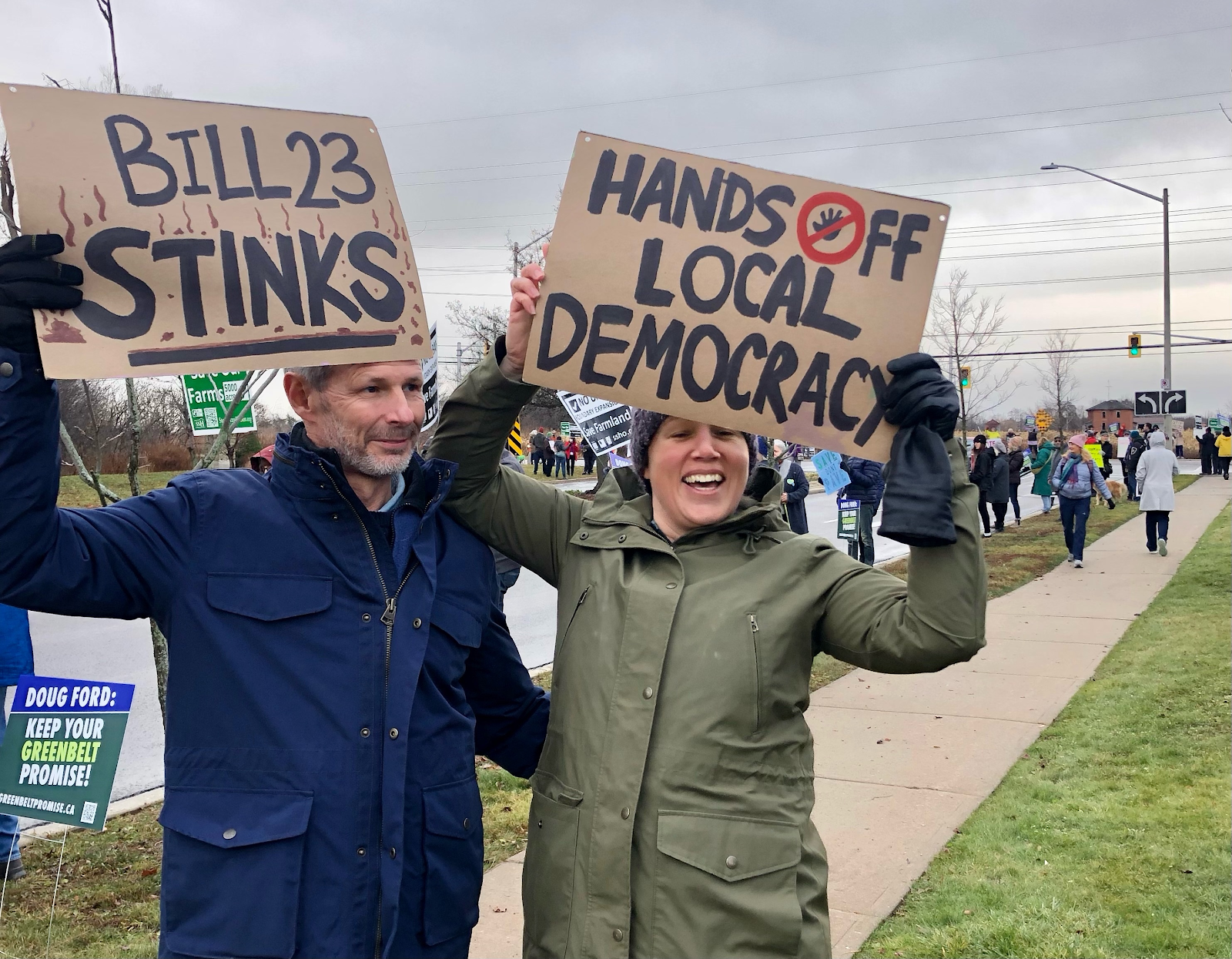It is expected that the Ontario government will today pass Bill 23, a.k.a. The Doug Ford Gift To Developers Act. The consequences of that legislation will be far-reaching, so much so that it warrants a united opposition from all who live in cities and enjoy the amenities that urban living offers.
Mississauga City Councillor Carolyn Parrish stops short of calling it panic. But in her 38-year political career, she says she has never seen the kind of stunned apprehension that Ontario’s More Homes Built Faster Act has evoked among municipal officials.
Known as Bill 23, the sweeping act aimed at building 1.5 million more homes in the next decade will freeze and reduce the development fees cities charge developers for the infrastructure to support the residents their buildings will house.
Across the GTA and beyond, politicians and bureaucrats are reeling at the prospect of what the Association of Municipalities of Ontario (AMO) estimates will be a $5.1 billion revenue shortfall over nine years, including $400 million in lost funding for community housing.
Civic officials across the region are using words like “unfathomable” and “devastating” to describe the fallout — tax hikes, service cuts and axed capital projects such as roads, sewers and transit.
The largesse that the Ford cabal is serving up to its developer overlords will come at a heavy cost to municipal taxpayers.
Mississauga says the new development rules will mean an $885 million loss in revenue over the next decade. Filling the gap would require a five per cent property tax increase every year for at least 10 years and/or cuts to city services and capital projects, according to city staff.
The government's propaganda would have the simple believe that the bill will result in more houses built in a cheaper and more timely manner. As well, Housing Minister Steve Clark says it will provide incentive for developers
to build more affordable and purpose-built rentals thanks to new fee exemptions on those projects. It will also help reduce the cost of housing for those looking to buy.
Critics say
there is nothing in Bill 23 that compels developers to build the kind of affordable rentals and supportive housing that protects against homelessness.
“If municipalities lose this funding they’re put in an impossible position. They will not have enough money to pay for the infrastructure that we need to continue for current and new Ontarians,” said Toronto NDP MPP Jessica Bell, a member of the legislative committee charged with gathering public feedback on the bill.
She said she was struck by the sheer enormity of the housing bill, which is hitting at the same time as the Premier Doug Ford’s Progressive Conservative government has allotted strong mayor powers to Toronto and turned over 7,400 acres of the protected Greenbelt to housing development.
Richmond Hill Mayor David West said his city has also asked the province to pause Bill 23 to allow for consultation.
“The costs to municipalities when growth does not pay for growth will be unfathomable,” said West.
“You either have to do without growth infrastructure, or the infrastructure can’t be paid for any other way but through property taxes,” he said. “That tax base was never designed to pay for this kind of growth.”
Clearly, there is method in the Ford madness. As has been observed, Bill 23 comes at a time when many new city councils have yet to be sworn in, and even those that have been have had no time to digest the full implications of this retrograde bill.
I recall not too long ago that Doug Ford was booed publicly. I suspect that experience will ultimately be dwarfed by the massive outrage that will ensue once the effects of this destructive bill are felt: closed libraries, decaying infrastructure, massive tax hikes: these are not the rantings of prophets of doom. Rather, they are the inevitable outcomes of having elected a government whose primary allegiances are hardly with the people they, in theory, serve.
UPDATE: Bill 23, the More Obscene Profits for Developers Act, has passed.







